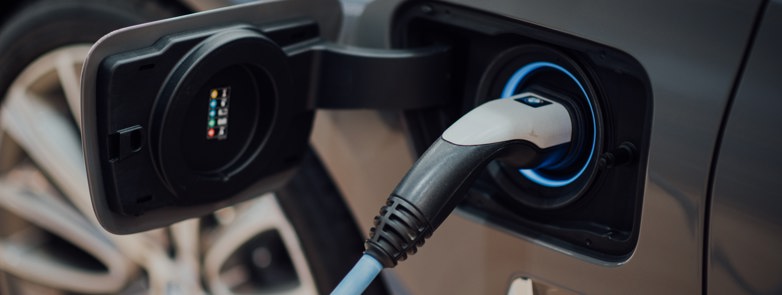Fuel Types for Cars Guide
Are you considering leasing a car in the UK but not sure which fuel type to choose? With so many options available, it can be overwhelming to decide which one is best suited for your needs.
In this guide, we’ll provide you with comprehensive information about the best fuel types for cars to help you determine which one is best for your lifestyle and budget.

In the UK, there are five main types of fuel available for cars: petrol, diesel, electric, hybrid, and plug-in hybrid. We’ve provided context on these fuel types for cars and listed their pros and cons to give you the edge while leasing. Each fuel type has its own set of advantages and disadvantages, and it's important to consider these before making a decision.
The most widely used fuel in the UK, and it's readily available at most petrol stations. Petrol cars are generally cheaper to buy than diesel cars, and they're usually cheaper to service and maintain. However, petrol engines tend to have lower fuel efficiency than diesel engines, and they produce more carbon emissions.
Petrol Pros | Petrol Cons |
Petrol is widely available and can be found at most petrol stations. | Petrol engines are generally less fuel-efficient than diesel engines. |
Petrol cars are generally cheaper to buy than other options. | Petrol cars produce more carbon emissions than other options. |
Petrol engines are more responsive and offer better performance than diesel engines. | Petrol prices can fluctuate, making it difficult to budget running costs. |
The second most commonly used fuel in the UK. Diesel engines are generally more fuel-efficient than petrol engines, which means they can go further on the same amount of fuel. Diesel cars also produce fewer carbon emissions than petrol cars, but they're often more expensive to buy and maintain. Diesel cars are also subject to higher road taxes.
Diesel Pros | Diesel Cons |
Diesel engines are generally more fuel-efficient than petrol and have longer driving distances. | Diesel cars are often more expensive to buy and maintain than petrol cars. |
Diesel cars produce fewer carbon emissions than petrol cars. | Diesel cars are subject to higher road taxes and can be subject to additional charges in some cities. |
Diesel cars often have better torque and performance than petrol cars. | Diesel engines can emit harmful particulate matter which can impact human health. |
Electric cars are becoming increasingly popular in the UK. These cars are powered by an electric motor and battery, which means they produce zero emissions. Electric cars are cheaper to run than petrol or diesel cars, and tax incentives are available for electric car owners. However, they have a limited driving range and require charging points.
Electric Pros | Electric Cons |
Electric cars produce zero emissions, making them environmentally friendly. | Electric cars have a limited driving range and require charging points. |
Electric cars are cheaper to run than many options, with reduced maintenance costs. | Charging an electric car can take much longer than filling up other types of vehicles. |
Tax incentives can help to reduce the cost of ownership. | Electric cars are often more expensive to purchase than other options. |
Hybrids combine a traditional petrol or diesel engine with an electric motor and battery. This means they have improved fuel efficiency and produce lower emissions than traditional petrol or diesel cars. Hybrid cars are more expensive than traditional cars, but they're usually cheaper to run in the long term.
Hybrid Pros | Hybrid Cons |
Hybrid cars offer improved fuel efficiency and lower emissions compared to traditional petrol or diesel cars. | Hybrid cars are more expensive to buy than petrol or diesel cars. |
Hybrid cars have better torque and performance than petrol or diesel cars. | Hybrid cars have more complex engines and drivetrains which can increase maintenance costs. |
Hybrid cars can be driven in electric-only mode for short distances, making them more environmentally friendly. | Hybrid cars are heavier than traditional vehicles which can have an impact on performance. |
Plug-in hybrids are similar to hybrid cars, but they have a larger battery that can be charged by plugging the car into an electrical outlet. This means they can run on electricity alone for a certain distance before switching to petrol or diesel mode. Plug-in hybrids are more expensive than traditional cars, but they offer increased driving range and lower emissions.
Plug-in Hybrid Pros | Plug-in Hybrid Cons |
Plug-in hybrid cars offer increased driving range and lower emissions compared to diesel and petrol cars. | Plug-in hybrid cars are more expensive than traditional petrol and diesel vehicles. |
Plug-in hybrid cars can be driven in electric-only mode for longer than traditional hybrids. | Plug-in hybrids have complex engines and drivetrains, increasing potential maintenance costs. |
Tax incentives are available for plug-in hybrid owners, helping to reduce ownership costs. | These cars are heavier than traditional petrol or diesel cars which can have an impact on performance. |

When choosing a fuel type for a leased car, there are several key considerations to keep in mind, especially when considering the best type of fuel for cars that match your lifestyle. These include:
Driving habits: Consider your driving habits and the typical distances you travel. If you mostly drive short distances around town, an electric or plug-in hybrid car may be a good choice. If you frequently drive long distances, a petrol or diesel car may be more suitable.
Mileage: Consider how much mileage you expect to do each year. If you have a high annual mileage, a petrol or diesel car may be more cost-effective in the long run. However, if you have a low annual mileage, an electric or plug-in hybrid car may be more cost-effective due to lower fuel costs and reduced maintenance.
Budget: Consider your budget for the car lease and running costs. Electric and plug-in hybrid cars may have higher upfront costs but lower running costs over time. Petrol and diesel cars may have lower upfront costs but higher running costs due to fuel costs and maintenance.
Access to charging points: Consider the availability of charging points in your area if you are considering an electric or plug-in hybrid car. Make sure you have access to charging points at home or work, or consider the availability of public charging points in your area.
By considering these factors and weighing up the pros and cons of each fuel type, you can make an informed decision about which fuel type is best suited to your lifestyle and budget.

When looking for the best leasing deals on cars with different fuel types, there are a few tips to keep in mind:
Shop around: Compare deals from different leasing companies to find the best prices and terms. Use comparison websites and check with individual dealerships to see what offers are available.
Consider tax incentives: The UK government offers tax incentives to encourage the uptake of low-emission vehicles. For example, electric and plug-in hybrid cars are exempt from vehicle tax and may also be eligible for a government grant. Make sure to check what incentives are available and factor them into your calculations.
Look for deals on older models: Leasing deals on older models may be more affordable, especially if a newer model has just been released. Consider if the older model will still meet your needs and factor in any potential savings.
Negotiate: Don't be afraid to negotiate with the leasing company to get a better deal. You may be able to get a lower monthly payment or reduce upfront costs if you negotiate effectively.
Factor in running costs: When comparing deals, make sure to factor in the running costs of each fuel type. Electric and plug-in hybrid cars may have lower running costs over time but may have higher upfront costs. Petrol and diesel cars may have lower upfront costs but higher running costs.
By keeping these tips in mind, you can find the best leasing deals on cars with different fuel types and make an informed decision based on your budget and driving needs.
Choosing the right fuel type is a crucial decision when leasing a car in the UK. By considering factors such as your driving habits, mileage, budget, and access to charging points, you can determine which fuel type is best suited for your needs.
We hope that this guide has provided you with comprehensive information about the different fuel types available in the UK, helping you make an informed decision. Now that you have a better understanding of the pros and cons of each fuel type, why not visit our Motoring Guides, view our latest leasing offers or call Nationwide Vehicle Contracts on 0345 811 9595 for expert advice?
Guide Information
Originally published: 20th April 2023
Last updated: 14th November 2024
